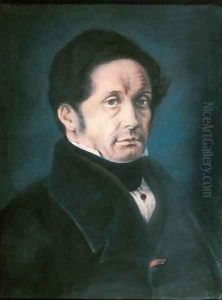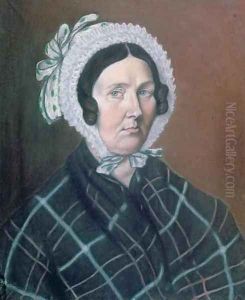Louis Pasteur Paintings
Louis Pasteur was not an artist in the traditional sense of painters or sculptors, but rather a scientist whose canvas was the microscopic world, and whose contributions to humanity could be seen as masterpieces of scientific inquiry. Born on December 27, 1822, in Dole, France, Pasteur embarked on a path that would fundamentally alter the fields of chemistry, microbiology, and public health.
Pasteur initially trained as a chemist and earned his doctorate in 1847 from the École Normale Supérieure in Paris, where he later became a professor. His early work involved studying the molecular basis for the asymmetry of certain crystals, a line of inquiry that led him to the discovery that organic molecules can exist in two forms that are mirror images of each other, now known as chirality. This discovery had profound implications not just for chemistry but also for biology and pharmacology.
However, it was Pasteur's venture into the study of fermentation and germ theory of diseases for which he is most renowned. Challenging the prevailing belief of spontaneous generation, he demonstrated that microorganisms were responsible for fermentation and spoilage of food and wine. His experiments not only disproved spontaneous generation but also laid the groundwork for the fields of microbiology and germ theory. Pasteur's work in these areas led to the development of pasteurization, a process that bears his name, which is used to kill harmful microorganisms in food and drinks, thereby extending their shelf life and making them safer to consume.
Beyond his scientific endeavors, Pasteur also made significant contributions to medicine. His research on infectious diseases led him to develop vaccines for several deadly diseases, including chicken cholera, anthrax, and rabies. The rabies vaccine, developed in 1885, was a groundbreaking achievement, saving countless lives and establishing the principles of immunization that underpin modern preventive medicine.
Louis Pasteur's career was marked by his relentless pursuit of scientific truth and his dedication to applying his discoveries for the betterment of mankind. He was a pioneer in applying the principles of sterilization to medical practice, significantly reducing the mortality rate from surgical procedures. For his contributions, Pasteur received numerous accolades and was revered as a national hero in France. He died on September 28, 1895, leaving behind a legacy that continues to impact science and medicine to this day. Pasteur's life and work underscore the profound impact that scientific research can have on improving human health and longevity.

